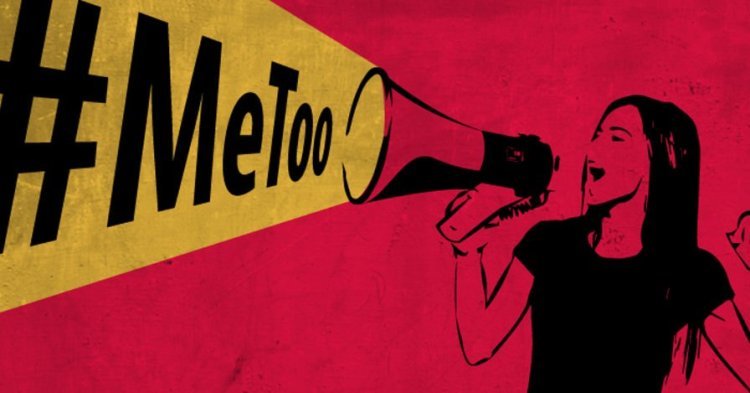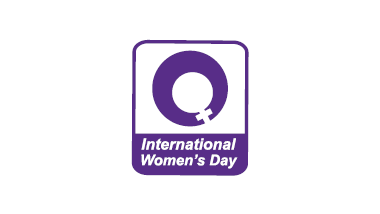Time to speak up!
Some European countries have developed their own version of the American hashtag to raise awareness on the issue.
In France, the hashtag #BalanceTonPorc (“Grass up your pig”), created by Sandra Muller, has provoked a wave of denunciations on the web. The campaign has not gone by unnoticed, but not always for good reasons: it was received negatively by many French people. France is still considered the country of seduction and chivalry. On the one hand, this ancient saying has sparked outrage towards the French equivalent of #MeToo, not demonstrative enough of this French “class”. On the other hand, this has ruled in favour of a reactionary discourse denoting a form of puritanism, as defended by Catherine Deneuve’s column a few days later. This column defended that the men’s “freedom to bother” should not be the target of a campaign perceived as a radical anti-men feminism. The campaign was wrongly acknowledged as a threat to sexual liberty, seduction or even sex by some French people. While the French society strongly answered to the call of #MeToo, it however found itself divided on the question.
In Sweden, the movement had an unprecedented impact, with the publication of more than 60,000 testimonies of women in Autumn 2017. The country was particularly shaken by the consequences of the Jean-Claude Arnault’s case. Husband of a famous poet of the Swedish Academy, he was sentenced to two years in prison for a rape committed in 2011. Its reputation tainted, Sweden was not able to award the 2018 Nobel Prize for Literature and postponed it to 2019.
In Spain, a literal translation of the hashtag appeared under #YoTambién. Although #MeToo was not essentially the trigger of massive demonstrations in the major Spanish cities, the movement benefited from a huge support in the months that followed it. The gang rape of a young women during the celebrations of Pamplona by a group of friends self-proclaimed “La Manada” (“the wolf pack”) in 2016, and the conviction of the perpetrators for sexual abuse and not for rape in 2018 sparked protests across the country, denouncing too much impunity for the aggressors. On the 8th March 2018, Spain set a national and international example with its celebration of the International Women’s Day.
In the United Kingdom, cases of sexual harassment have been reported to the doors of the Government. Michael Fallon had to quit his post as Defence Secretary after being accused of having “inappropriate behaviours” towards a number of women. #MeToo was also used by Labour MP Stella Creasy, who argued that shame should be on the aggressors and not on her.
In Italy, the journalist Julia Blasi started the hashtag #Quellavoltache (this time when) which calls for women to share their experiences with inappropriate remarks or gestures, harassment or rape.
Some countries almost indifferent to the movement
Other European countries have almost not been impacted by the campaign at all, especially the Balkans and Eastern Europe and, surprisingly, Germany. Although there was an equivalent, #Aufschrei (“the alarm call”) five years ago, after a journalist was the victim of inappropriate statements by a German politician and some reports of rape, sexual assault and sexual harassment, these cases remained rather isolated. Despite everything, complaints have been on the rise since 2017, but the Germans have a cultural tendency to avoid public denunciations that could generate conflict.
Of course, different technical, sociological and cultural criteria have to be taken into account in order to understand why a country is more capable of having more or less cases of sexual harassment. A map of the European Union Agency for Fundamental Rights shows in which European countries sexual harassment is the most present. Some Eastern countries, like Poland, Austria or Romania, show the lowest rates. This does, however, not always correspond to reality. The reasons can vary: a fear of reprisal, a lack of protection due to a too weak legislation towards the culprits, or even a different perception of a same act between two women of two different countries. According to a YouGov study in October 2017, a Danish woman will react more severely to a sexual joke made by a man than a British woman.
At a societal level, #MeToo has considerably changed the attitude towards different types of violence towards women in general. Nonetheless, for a real long-term success of such a movement, it is necessary to have legal support. Some of the countries mentioned have made legislative progress in protecting victims of sexual assault or harassment.
The political repercussions of #MeToo
In France, the President of the Republic, Emmanuel Macron, has made it one of his guiding principles with the help of the State Secretary for Gender Equality, Marlène Schiappa. For cases of street harassment, the law now foresees a sanction in the form of a fine or prison sentence depending on the gravity of the act.
Sweden voted a law on consent on the 1st July 2018. By doing so, Sweden was the tenth county in Europe to explicitly recognise a non-consented sexual act as a rape. The law includes two new offenses: rape by negligence and sexual abuse by negligence, with a prison sentence of up to four years.
In Spain, the new socialist government led by Pedro Sanchez is discussing a modification of the law regarding consent, that would be based on the new Swedish law.
Finally, on 25th October 2017, the European Parliament summoned a plenary session to discuss sexual harassment and abuse and gender-based violence, which affect one out of two women in the European Union. Nevertheless, this session was also organised to discuss accusations within the European institutions, gathered by the information website Politico.eu. The Parliament opened an internal investigation across its “anti-harassment committee”, but not enough women are aware of the existence of such a committee within the Parliament. The day after, the MEPs voted an external audit and “measures to combat the low report rate”.
The stakes of the #MeToo movement
In short, the impact has been much stronger in Western Europe, both concerning real-life consequences, as well as at a political and legal level. Why these repercussions did not have the same impact in all European countries? We addressed a potential cultural question earlier, but would this really justify a heterogeneity of the liberalisation of women’s speech?
Is violence against women just another cultural trait, proper to each country? Does the fight against this violence depend only on a subjective perception, both societal and political, of what a woman “may” suffer or not? It shouldn’t.
Ultimately, if it has had a more or less concrete impact, the #MeToo campaign has especially raised international awareness. It has shown to what extent this phenomenon concerned women all over the world, that the question concerns us all, and is an issue that each country should tackle. The same goes for gender equality: what is the point of achieving equal pay if one gender remains threatened by the other, in the public and private sphere?






Follow the comments: |
|
